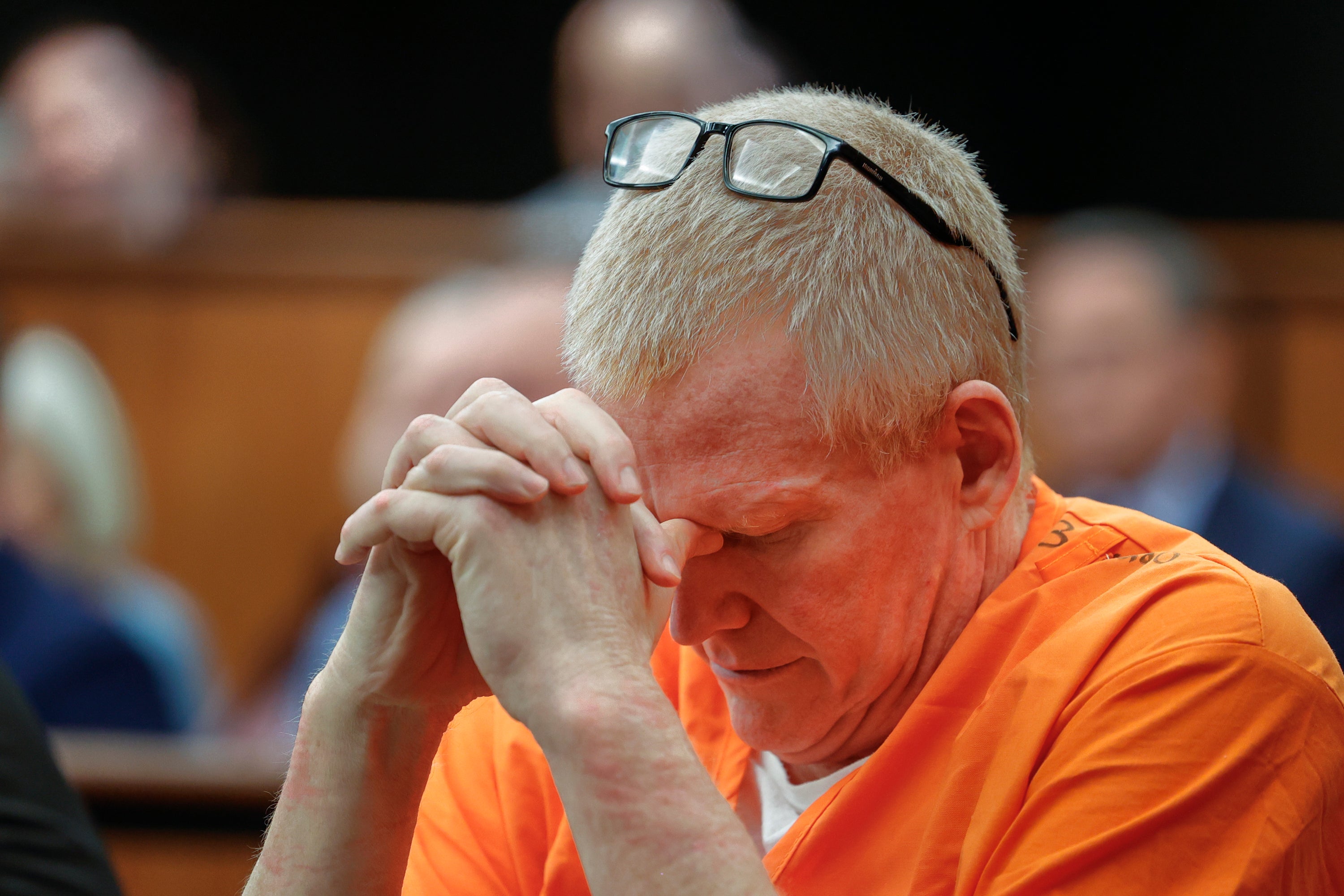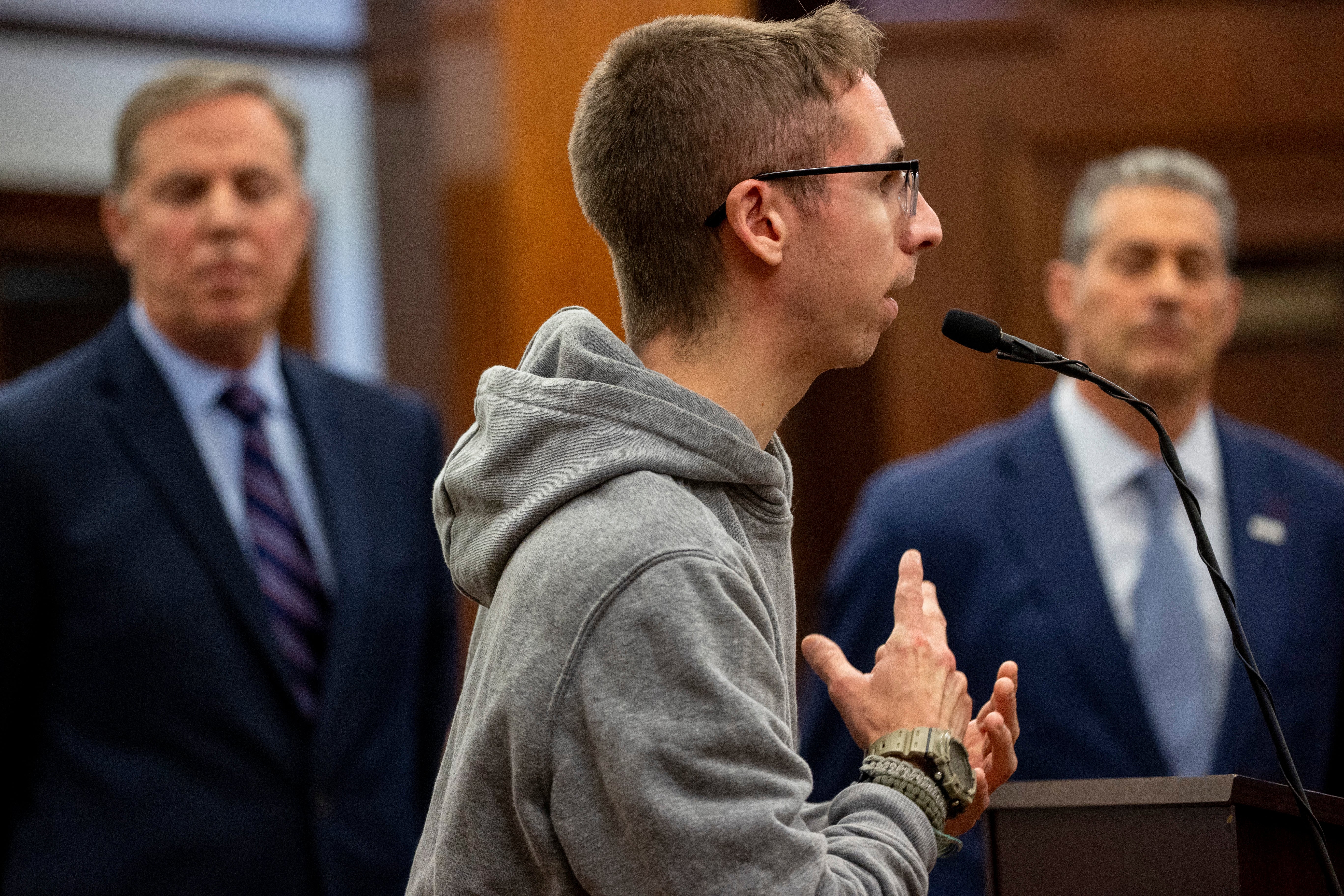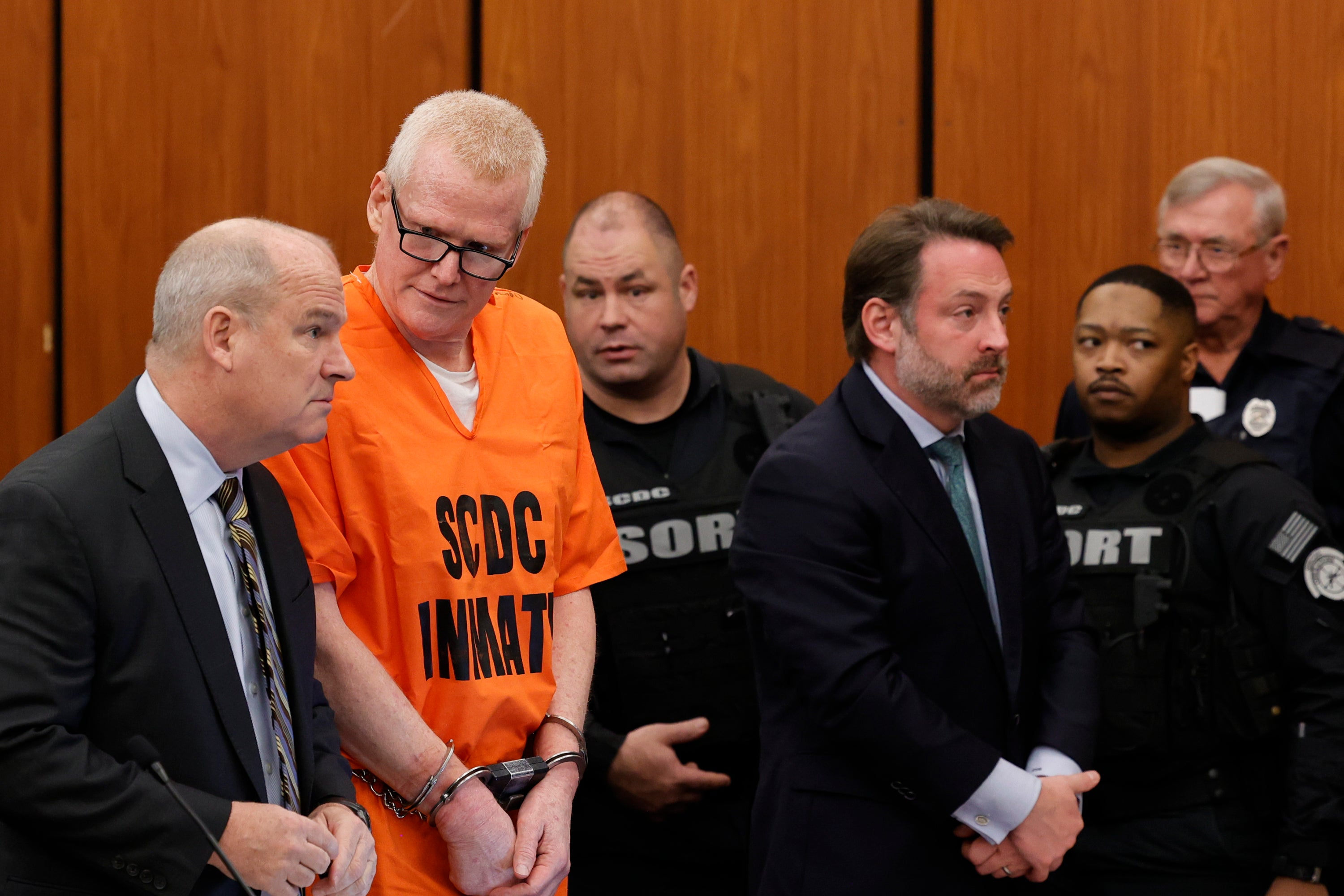Alex Murdaugh faces sentencing today for federal financial crimes as prosecutors seek to quash plea deal
Under the terms of the plea deal, the convicted murder was required to cooperate with prosecutors in the federal financial crimes case. But now, DOJ prosecutors say Murdaugh lied on a polygraph test
Convicted murderer Alex Murdaugh is set to be sentenced today on a slew of federal financial fraud crimes, with prosecutors making an 11th-hour bid to break a plea deal after he allegedly lied on a polygraph test.
The 55-year-old legal dynasty heir – who will already die behind bars after being handed two consecutive life sentences for murdering his wife and son – will appear in federal court in Charleston at 10am ET on Monday, where US District Judge Richard Gergel will determine what penalty he must face for a sprawling decade-long scheme where he stole millions of dollars from vulnerable legal clients.
From at least 2008 through 2021, Murdaugh swindled several clients at his law firm PMPED out of over $10m in funds.
Among the victims was the family of Gloria Satterfield – the Murdaugh’s longtime housekeeper who helped raise his two sons Paul and Buster.
Satterfield died in February 2018 following a mysterious trip and fall accident down the steps of the affluent family’s Moselle home – the same estate where Murdaugh murdered his wife Maggie and son Paul just three years later.
Murdaugh urged Satterfield’s two sons to file a wrongful death lawsuit then stole the $4m in settlement money from them.
In September, Murdaugh finally pleaded guilty to 22 federal charges over the multi-million-dollar scheme including wire fraud, bank fraud, money laundering and conspiracy to commit wire fraud and bank fraud after reaching a plea deal with Justice Department (DOJ) prosecutors.
Under the terms of the deal, he was to face up to 30 years in federal prison to be served concurrently with his state conviction on the same charges. In November, he was handed a 27-year prison term in state court at a highly-emotive sentencing hearing where he was confronted by several of his victims.

The federal plea deal required Murdaugh to cooperate with prosecutors and be truthful about the details of his sprawling fraud.
But now, DOJ prosecutors are saying that the double murderer has broken his end of the bargain.
In a dramatic court filing last week, Assistant US Attorney Emily Limehouse argued that Murdaugh had lied on a polygraph test. The filing also states that an additional $1.3m in stolen money and a further 11 victims of Murdaugh’s financial crimes has been discovered since the deal was reached.
In total, this now takes the extent of Murdaugh’s financial fraud scheme to a staggering 25 known victims and more than $10.5m money stolen. Ms Limehouse argued that these newly-discovered crimes would add nine to 11 years to a prison sentence.
As a result, the DOJ is asking Judge Gergel to scrap the plea deal and is pushing for Murdaugh to be hit with a lengthier sentence to now run consecutively to his state sentence.
Instead of sentencing guidelines of 21 years to run concurrently with his state sentence, Murdaugh could face 20 to 30 years on each of the 22 counts.
Despite his convictions, many questions remain about the extent of Murdaugh’s crimes.
While he continues to insist that he stole the money to feed his own decades-long opioid habit, prosecutors have long cast doubts on this assertion – pointing to, in part, the sheer extent of missing money which appears to be unaccounted for.

Two of his accomplices – both also powerful figures in the Lowcountry – have also been convicted over the white-collar fraud scheme. Fellow attorney Cory Fleming was sentenced to nearly four years in federal prison after pleading guilty to conspiracy charges and confessing to swindling millions from Satterfield’s family. Palmetto State Bank CEO Russell Laffitte, who like Murdaugh came from a prominent, affluent family, was sentenced to seven years.
The trio of conspirators would represent clients in wrongful death lawsuits then steal the funds for themselves. Laffitte and Fleming would often act as conservators to Murdaugh’s victims.
Much of the stolen money was funneled through a fake “Forge” bank account which sought to imitate the legitimate and totally unrelated business Forge Consulting.
Some of the money was also channeled through checks cut to Curtis “Cousin Eddie” Smith – Murdaugh’s distant cousin and alleged drug dealer who also happens to be the alleged accomplice in the killer’s bizarre botched hitman plot.
Judge Gergel has already hinted that he could hand down a harsher sentence to Murdaugh than the prosecution guidelines recommend.
Murdaugh’s financial crimes came crashing down around him in the lead-up to the brutal murders of his wife Maggie and son Paul on 7 June 2021.
At his murder trial, jurors heard how Murdaugh’s colleagues at PMPED were closing in on his thefts with a colleague confronting him about $792,000 in stolen money on the morning of the murders.
His finances were also coming under intense scrutiny in a lawsuit brought by the family of Mallory Beach – a 19-year-old woman who died in a 2019 crash on the Murdaugh family boat. A hearing for the boat crash lawsuit was scheduled for 10 June – three days after the murders.
Jurors at the trial heard how Murdaugh shot and killed his wife and son to distract from his crumbling empire.
Two months on from the deadly shootings – in September 2021 – Murdaugh was ousted from his law firm after they uncovered his years of theft.

A mere hours later, Murdaugh was shot in the head by the side of a road in Hampton County in a bizarre incident now known as the “roadside shooting” incident.
Days later – after checking in to rehab for what he claims was a two-decade-long opioid addiction – he confessed to paying his distant cousin Mr Smith to shoot and kill him in an assisted suicide plot so that his surviving son Buster could get a $10m life insurance windfall.
Both men were arrested and charged over the incident. However, Mr Smith denies Murdaugh’s version of events and the charges against him are still making their way through the courts.
In a dramatic moment at his murder trial, Murdaugh took the stand and confessed to running a vast financial fraud scheme.
But, while he may have confessed – at least in part – to stealing millions from vulnerable clients, close friends and even his own family members, Murdaugh continues to deny murdering Maggie and Paul.
He was convicted of the murders in May 2023 following a dramatic six-week “trial of the century” where his web of lies fell apart when jurors heard damning cellphone footage placing him at the murder scene mere moments before the killings. He was sentenced to life in prison.
Since then, he has fought against his conviction – sensationally seeking a new trial in September based on allegations that Colleton County Court Clerk Becky Hill tampered with the jury and pressured them to return a guilty verdict against him.
His bid for a new trial has since been denied and Ms Hill has denied the allegations. Yet, she still remains the focus of two investigations by South Carolina Law Enforcement Division (SLED).
And last week, she resigned from her role with immediate effect – a move she insisted was not related to the jury tampering accusations.

